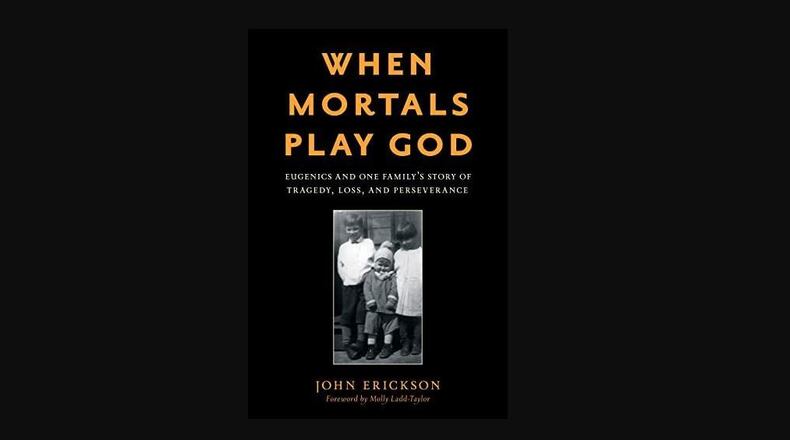The practice of eugenics was in vogue in the United States a century ago. The Oxford Dictionary defines eugenics as: “the study of how to arrange reproduction within a human population to increase the occurrence of heritable characteristics regarded as desirable. Developed largely by Sir Francis Galton as a method of improving the human race, eugenics was increasingly discredited as unscientific and racially biased during the 20th century, especially after the adoption of its doctrines by the Nazis in order to justify their treatment of Jews, disabled people, and other minority groups.”
In his book “When Mortals Play God - Eugenics and One Family’s Story of Tragedy, Loss, and Perseverance” John Erickson shares the story of his maternal grandmother. She was a victim of laws in Minnesota that allowed local governments to commit terrible injustices.
Some eugenics laws lasted decades. The author writes: “The protagonist of this book, Rose DeChaine, was one of the early subjects of this awful experiment - in essence, a guinea pig.” During the 1920′s some American women began testing the limits of society. Rose was one of them.
At school in Brainerd, Minnesota, Rose was rebellious. Her uncooperative attitude got her into trouble. She left school and engaged in activities that attracted the notice of the authorities. As a teenager Rose began drinking and consorting with men.
When Rose started having babies the full force of a disapproving society came to bear upon her. She was institutionalized, while her children remained with her mother. Eventually Rose endured a forced sterilization. The pretext for this action? Their eugenics standards characterized Rose as “feeble-minded.”
Her three young children were then removed from their loving grandmother’s care and placed in a Catholic orphanage some distance away. The youngest child, Robert, was only 3 years-old. The oldest boy, Ernie, might have endured sexual abuse at the orphanage.
Then there was Millie, the author’s mother. Despite everything, Millie did just fine. Millie will be 101 years-old this month. In the final portion of the book we learn what became of Robert and Ernie. The tragedy of what happened to Rose kept cascading through their lives.
Ernie was highly intelligent. At the end of his life he lost touch with reality and committed a horrific crime. And poor Robert, the mysterious toddler who got adopted and was never seen again by his brother or sister - his story was more painstaking to reconstruct. His life and death were tragic, too.
John Erickson conducted a diligent search for Robert hoping his mother could be reunited with the brother she had not seen in so long. It wasn’t meant to be. This is a powerful and touching account of how ordinary citizens got their lives derailed by a cruel, insensitive bureaucracy.
Were Rose’s descendants clearly doomed to be feeble-minded? Not even close. The author is a retired journalist. As an editor for the Dayton Daily News, he directed coverage on three stories which became Pulitzer Prize finalists. In 1998 one such series received the Pulitzer for National Reporting.
Vick Mickunas of Yellow Springs interviews authors every Saturday at 7 a.m. and on Sundays at 10:30 a.m. on WYSO-FM (91.3). For more information, visit www.wyso.org/programs/book-nook. Contact Mickunas at vick@vickmickunas.com.
About the Author

